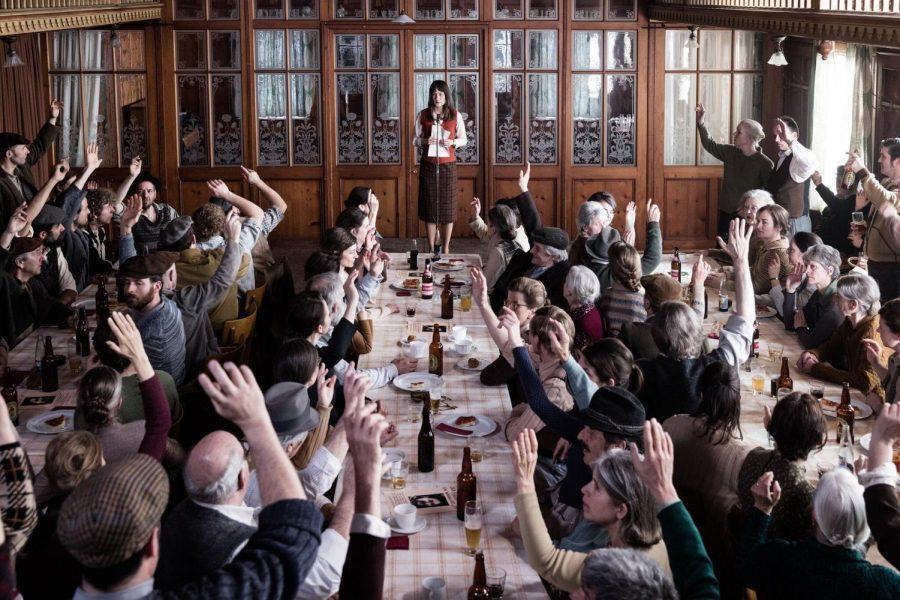Women’s Suffrage Brought to Life
The new film by director Petra Volpe, “The Divine Order,” follows the life of Nora in 1970s Switzerland and her struggles to take the movement of voting equality forward. The film opens in theatres on Oct. 27 in New York.
October 23, 2017
It can easily be assumed that the women’s suffrage movement ended in the early years of the 20th century when American women fought for the 19th Amendment. For other countries, the campaign continued for several more decades.
The film “The Divine Order” chronicles the story of a small country town in Switzerland in 1970, where an unlikely woman spearheaded the movement for voting equality. The film opens to a montage of the social upheaval of the 1960s backed by a female-driven rock song. Then, it cuts harshly to a town devoid of all revolutionary elements, the very antithesis of the spirit that characterized that same era in America. This tiny world set atop a snow capped hill is seemingly stuck in a past where women are the property of their husbands and their voices are silenced.
The hero, Nora (Marie Leuenberger), exhibits no heroic qualities at all as she moves from one vanilla house chore to the next. Nora is bored — washing the dishes, caring for her husband’s father and hanging socks to dry from sunrise to sunset. When she brings up the idea of adopting part-time work to her husband, Hans (Max Simonischek), he refuses and informs her that she needs his permission before getting a job.
Nora is chosen as the unlikely face of the women’s suffrage movement in the village after she receives pamphlets for the cause. She educates herself on Swiss marriage law and begins a journey of feminist enlightenment — politically, socially, economically and sexually. Though she and her family become targets of harassment and humiliation, Nora transforms from an uninformed home-bound mother into a spirited, liberated leader. Initially, Nora’s chapter of suffragettes is small, but as more women within that gray world realize that they too can add their voices to the movement, the noise becomes deafening.
Director Petra Volpe makes strong use of the beautiful vista, dominated by mountains and steep, winding roads. It is an isolating picture of the town, but this serves only to emphasize the surprising strength and passion of the women inside. The movie is deeply moving and inspiring, reminding present-day audiences of the bravery these movements required and contextualizing it in the feminist battles that still burn bright today.
With powerful performances from the cast, the audience is pulled into the strikes and picket lines, achieving a sense of pride alongside those women. “The Divine Order” — drawing its title from passages in the Bible that dictated women’s role in society — is a touching account of what happened everywhere in the 20th century, and it reminds audiences today to keep fighting toward an egalitarian tomorrow. “The Divine Order” opens in New York theaters on Friday, Oct. 27.
A version of this article appeared in the Monday, Oct. 23 print edition. Email Jillian Harrington at [email protected].


























































































































































